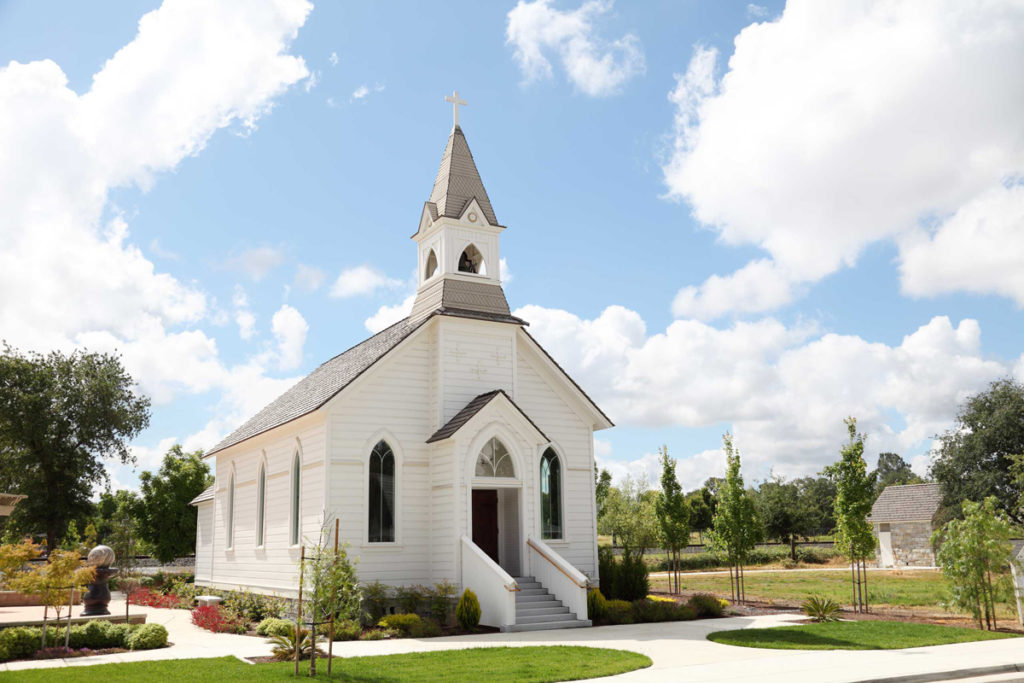Peace that Passes Understanding
The command to “Fear not” is premised on faith in God. The opposite of fear is peace. But true peace only comes when our faith is defined by a consistent focus on our Lord.
The God of Refuge
With the coronavirus scare coming to a pinnacle, and people around us starting to panic, we should trust in what we know to be true about God rather than speculating in what we don’t know about our circumstances. Psalm 46 assures us that “God is our refuge and strength; a very present help in trouble. Therefore, we will not fear…”
Blameless Leadership

What kind of men should be elders in the church?
When we leave that decision up to men, we usually choose those who are popular, good-looking, successful in business, charismatic, leaders in the community, and good public speakers. While that list of qualities might make for a good political candidate, it is not the best place to start when evaluating a man to be an elder in God’s church.
In 1 Timothy 3:2-7, Paul lists God’s qualifications for an elder, starting with this:
“A bishop then must be blameless…”
Does that mean that elders have to be perfect? No, because we have all sinned and fallen short of the glory of God.
What it does mean is that they should have a degree of spiritual maturity which shows itself in a pattern of godly living. It means that their goal is to become more like Christ every day, just as Paul states in Philippians 3:14, “I press toward the mark for the prize of the high calling of God in Christ Jesus.”
No one is perfect, so we shouldn’t expect our elders to be perfect in everything. But according to God’s criteria, they should be godly above all else.
While we tend to evaluate men from their outward appearance, remember that God looks on the heart.
Humility in Leadership

1 Timothy 3 and Titus 1 both list the qualities and qualifications for men who seek to be pastors/elders in the church. All of the items included in these lists are important in considering whether a man should be ordained as an elder, because those men that God has called, He has also qualified.
One important quality that does not appear on these lists, yet is just as essential for a pastor or elder, is found in 1 Peter 5:5.
“Likewise, ye younger, submit yourselves unto the elder. Yea, all of you be subject one to another, and be clothed with humility: for God resisteth the proud, and giveth grace to the humble.”
In this passage, the Apostle Peter admonishes all pastors and elders to be submissive to each other in humility.
No matter how qualified one may be otherwise, the absence of humility will cause his ministry to be completely ineffective.
Earlier in 1 Peter 5, the apostle calls pastors and elders to “shepherd the flock…being examples to them.” If the leadership of the church cannot live and minister with the right attitude about themselves, how can the congregation be expected to follow them in submission and humility?
How true it is that we cannot lead others unless we “practice what we preach.”
Who Is Church For?
 More and more churches today are making their worship more like the world in an attempt to attract unbelievers to their services. While the goal may be to expose more people to the Gospel, the idea itself is unbiblical.
More and more churches today are making their worship more like the world in an attempt to attract unbelievers to their services. While the goal may be to expose more people to the Gospel, the idea itself is unbiblical.
The truth is that the worship services of the church were never intended for unbelievers. Ephesians 4:12 says that pastors and teachers are given “for the equipping of the saints for the work of service, to the building up of the body of Christ.”
The purpose for leadership and teaching within the church is to help Christians mature and to prepare them for ministry. Unsaved people cannot benefit from that.
1 Corinthians 2:14 says,
“But the natural man receiveth not the things of the Spirit of God: for they are foolishness unto him: neither can he know them, because they are spiritually discerned.”
Unbelievers cannot understand the truth of God or how to apply it in their lives because they lack the Spirit of God to guide them.
If we, in an attempt to appeal to unbelievers, water down the truth of God or change the worship of God into something that worldly people can relate to, we have abandoned God’s very purpose for the church. Let’s remain faithful to God and His Word in our worship in order to fulfill His goal for the church.
Shepherding the Flock

Most people in churches today are familiar with the 23rd Psalm which presents Jesus Christ as our Shepherd. Jesus called Himself the “Good Shepherd” in John 10:14, and said that He knows His sheep and they know Him.
But the term shepherd is applied to another group of people in the Bible as well: elders and pastors.
In 1 Peter 5:2-3, the apostle addresses elders in the church and exhorts them to
“shepherd the flock of God that is among you, exercising oversight, not under compulsion, but willingly, as God would have you; not for shameful gain, but eagerly; not domineering over those your charge, but being examples to the flock.”
God has called pastors and elders to lead and care for the congregation as a shepherd would take care of his sheep.
Since Christ is the “head Shepherd” and the sheep are His, then pastors and elders are just “under-shepherds” who work under the Head Shepherd’s authority. As Christ’s sheep in response to that authority, believers should then submit to the godly leadership and example of our under-shepherds, as Hebrews 13:17 says: “Obey your leaders and submit to them, for they keep watch over your souls…”
God’s Plan for Prosperity

When it comes to preparing financially for the future, there are a multitude of financial advisors out there who will tell us what savings and investment plans will yield us the best return. And while it is wise to invest our money carefully for the future on earth, it is even more important that we be investing into God’s Kingdom.
God’s investment plan for the future is clearly stated in 2 Corinthians 9:6 –
“But this I say, He which soweth sparingly shall reap also sparingly; and he which soweth bountifully shall reap also bountifully.”
This verse comes in the middle of the Apostle Paul’s admonition to the Corinthians that they should be generous givers. The principle in this verse is that when we give generously of our money to help others, God will give money back to us generously. This is the principle of sowing and reaping. What we sow we will reap in like kind.
Although this sounds a lot like the “Prosperity Gospel,” there is one big difference. The verses following tell us WHY God will give back to us so abundantly—so that we can give to others even more, not so that we can keep it and use it for our own pleasure.
2 Corinthians 9:8-11 tells us, And God is able to make all grace abound to you, so that having all sufficiency in all things at all times, you may abound in every good work. (9) As it is written, “He has distributed freely, he has given to the poor; his righteousness endures forever.” (10) He who supplies seed to the sower and bread for food will supply and multiply your seed for sowing and increase the harvest of your righteousness. (11) You will be enriched in every way to be generous in every way, which through us will produce thanksgiving to God.
Generous giving is God’s path to prosperity. But real prosperity is only experienced as we abundantly bless others with all that God has blessed us with.
The Channel for Blessing

In Acts 20:35, we have recorded for us some very famous words of Christ: “It is more blessed to give than to receive.”
Most people, especially Christians, are familiar with this phrase, but not many people actually believe it. When you really believe something, it will affect the way you live. So, if we truly believed this principle of giving, we would be more generous in our giving. Yet, most people, including many professing Christians, live their lives in a way that shows they are more concerned about receiving than giving.
What it comes down to is really just a lack of faith. We don’t trust that what Christ said is really true, or we think that, in some way, it applies more to others than ourselves.
In Luke 6:38, Jesus expounded upon this principle with a promise:
“Give, and it shall be given unto you; good measure, pressed down, and shaken together, and running over, shall men give into your bosom. For with the same measure that ye mete withal it shall be measured to you again.”
Jesus was not promising that for every dollar we gave, He would give us two. What He promised is that for those who had a heart focused on giving, they would be abundantly blessed by God.
God’s blessings do not always have dollar signs attached to them, but His blessings are worth more than anything we could gain on earth. So, if you truly value God’s blessings over earthly treasure, be a giver.
